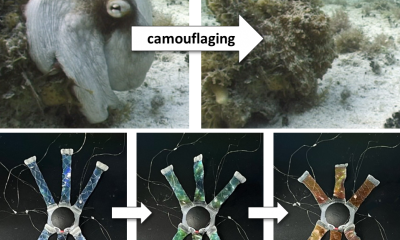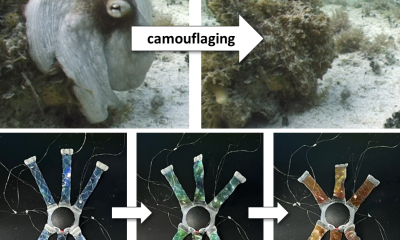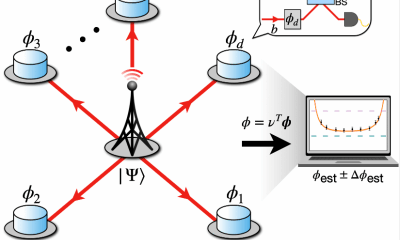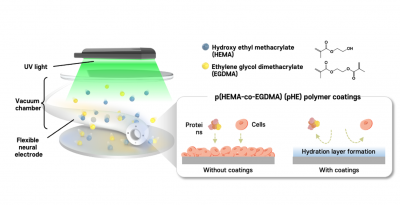Science
Innovative Coating Technology Triples Lifespan of Brain Electrodes
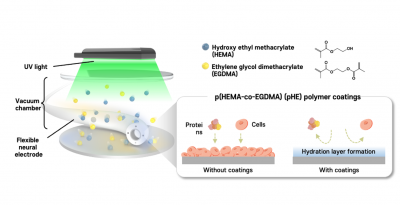
A research team led by Dr. Hyejeong Seong at the Korea Institute of Science and Technology (KIST) has achieved a significant breakthrough in brain signal recording technology. In collaboration with Prof. Seongjun Park from Seoul National University, the team has developed a novel coating technology that extends the lifespan of implanted electrodes from one month to over three months.
This advancement allows for prolonged and more reliable monitoring of neural activity, offering new possibilities for research and treatment in neurology. The ability to maintain effective communication with brain tissue for an extended period could lead to improved outcomes in various medical applications, including brain-computer interfaces and neurological disease management.
Enhancing Neurotechnology with Innovative Coating
The innovative coating technology developed by the KIST team addresses a critical limitation of current electrode implants. Traditional electrodes degrade rapidly due to the body’s immune response, resulting in a short recording duration. The new coating significantly mitigates this issue, providing a more stable environment for electrodes and enabling longer-term studies of brain function.
According to Dr. Seong, the research represents a pivotal step forward in neurotechnology. “By extending the life of these electrodes, we can gather more comprehensive data, facilitating deeper insights into the brain’s workings,” she stated. This increased data collection capability is paramount for both scientific research and clinical applications.
The collaborative effort between KIST and Seoul National University highlights the importance of interdisciplinary approaches in advancing medical technology. Sang-Rok Oh, President of KIST, emphasized the potential impact of this technology on patient care, stating, “This innovation not only enhances our understanding of the brain but also paves the way for novel therapeutic strategies.”
Future Implications for Brain Research
The implications of this development extend beyond immediate applications. Longer-lasting electrodes could significantly reduce the frequency of surgical interventions, improving patient comfort and reducing healthcare costs. The ability to monitor brain signals over extended periods also opens doors for more robust clinical trials and research initiatives.
As research continues, the team plans to explore further enhancements to the coating technology. Their goal is to increase biocompatibility and functionality, which could lead to even longer-lasting and more effective brain implants.
This breakthrough underscores the vital role of ongoing research in the field of neuroscience. With continued advancements, the potential for innovative treatments and technologies aimed at neurological conditions remains promising. The collaborative efforts of KIST and Seoul National University serve as a reminder of the power of science in addressing complex medical challenges.
-

 Science1 month ago
Science1 month agoNostradamus’ 2026 Predictions: Star Death and Dark Events Loom
-

 Technology2 months ago
Technology2 months agoOpenAI to Implement Age Verification for ChatGPT by December 2025
-

 Technology7 months ago
Technology7 months agoDiscover the Top 10 Calorie Counting Apps of 2025
-

 Health5 months ago
Health5 months agoBella Hadid Shares Health Update After Treatment for Lyme Disease
-

 Health5 months ago
Health5 months agoAnalysts Project Stronger Growth for Apple’s iPhone 17 Lineup
-

 Technology5 months ago
Technology5 months agoElectric Moto Influencer Surronster Arrested in Tijuana
-

 Education5 months ago
Education5 months agoHarvard Secures Court Victory Over Federal Funding Cuts
-

 Health5 months ago
Health5 months agoErin Bates Shares Recovery Update Following Sepsis Complications
-

 Technology7 months ago
Technology7 months agoMeta Initiates $60B AI Data Center Expansion, Starting in Ohio
-

 Technology6 months ago
Technology6 months agoDiscover How to Reverse Image Search Using ChatGPT Effortlessly
-

 Science4 months ago
Science4 months agoStarship V3 Set for 2026 Launch After Successful Final Test of Version 2
-

 Technology7 months ago
Technology7 months agoRecovering a Suspended TikTok Account: A Step-by-Step Guide



